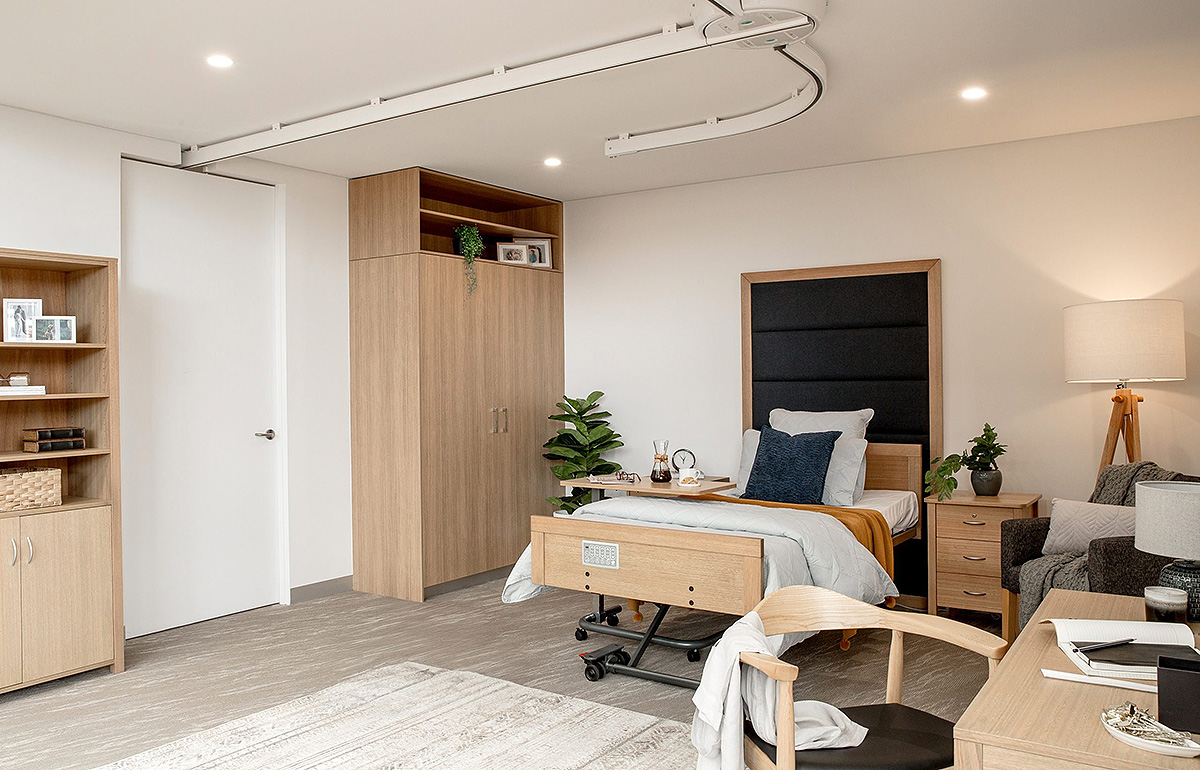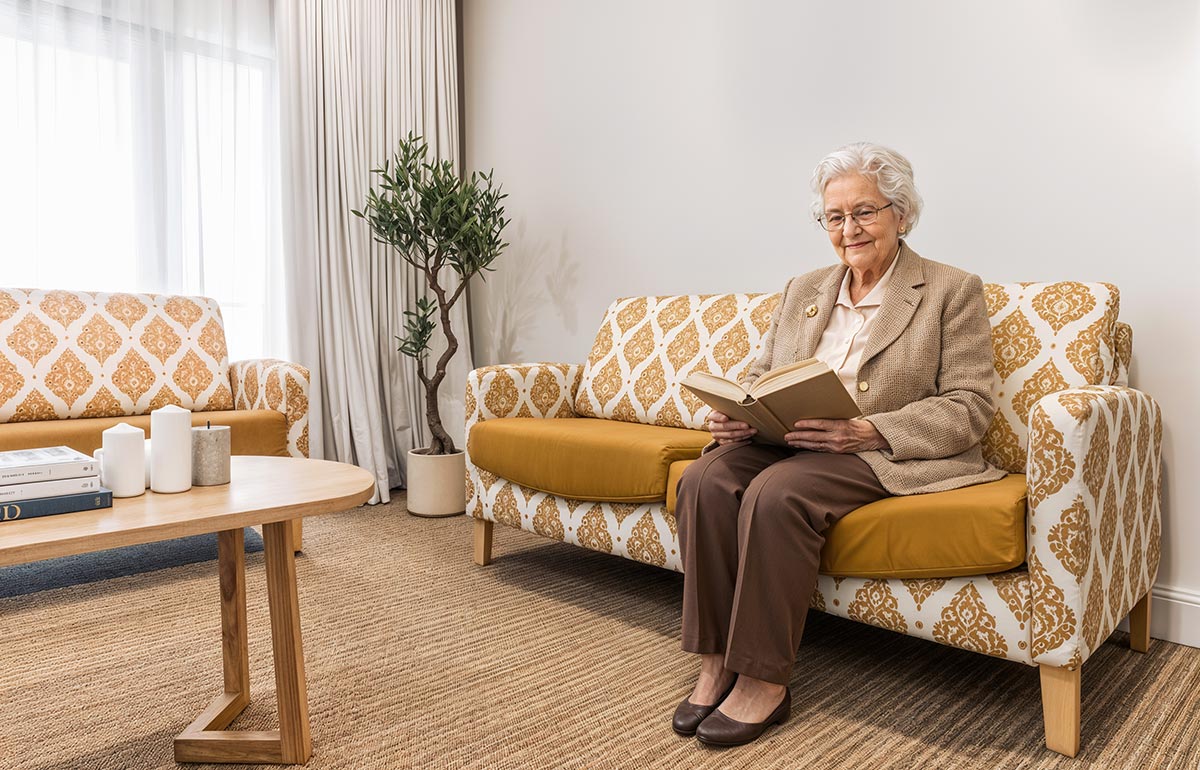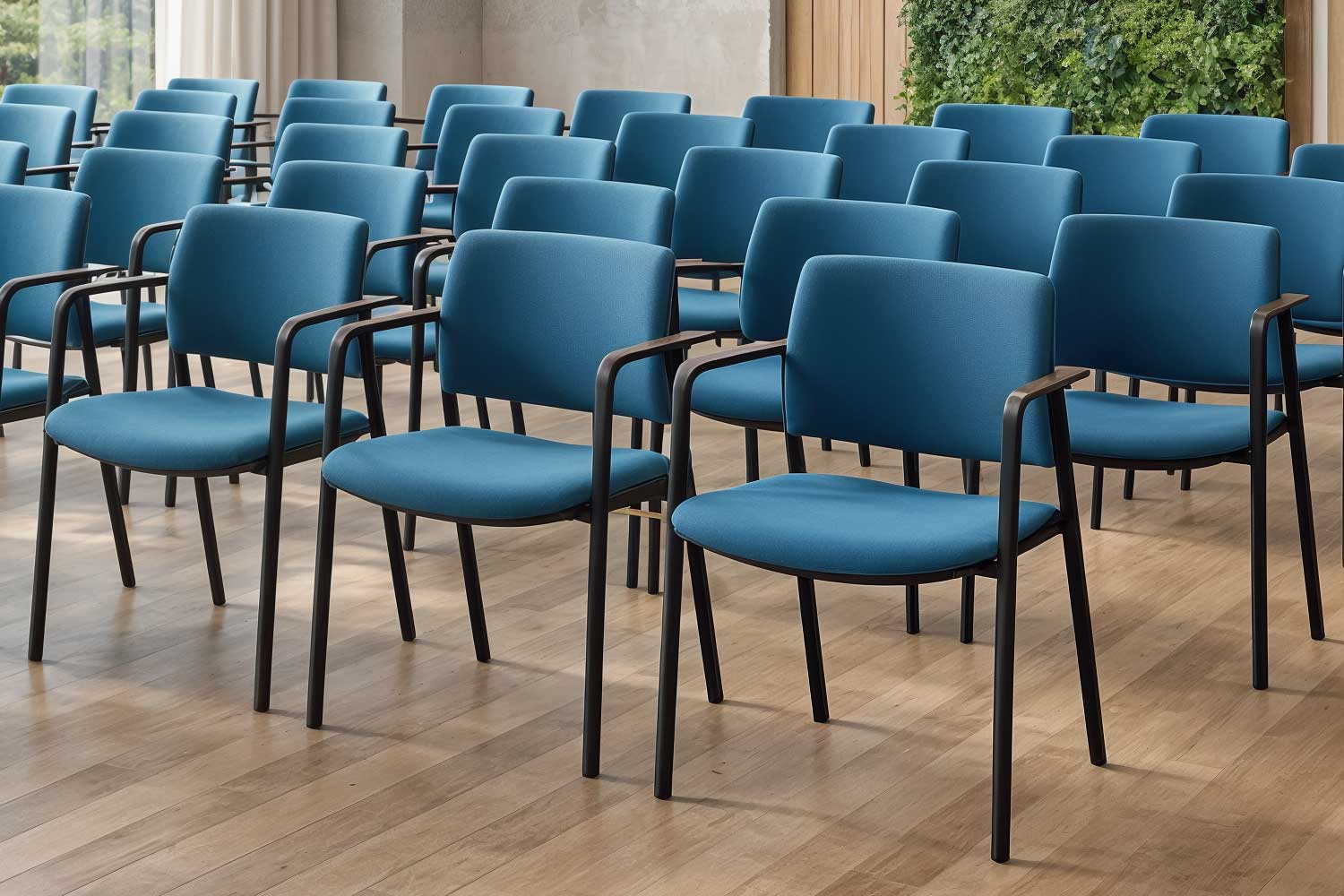7 Strategies for Promoting Mental Wellness in Australian Retirement Villages

Retirement can be an exciting time, but it can also be challenging for many older adults. The transition from a busy work life to a more leisurely one in an Australian Retirement Village can result in feelings of isolation and loneliness, leading to mental health issues.
Furthermore, the fear and uncertainty surrounding the COVID-19 pandemic has exacerbated existing mental health conditions, such as PTSD or dementia. The pandemic has also highlighted the importance of addressing the mental health needs of older adults living in retirement villages and the need for innovative solutions to support their well-being during challenging times.
Fortunately, Australian retirement villages can help promote mental wellness among residents through various strategies.
Here are seven strategies for promoting mental wellness in Australian retirement villages:
1. Encourage Social Interaction
A study published in the Journal of Applied Gerontology found that social activities in retirement villages were associated with better physical and mental health outcomes. The study found that residents who participated in social activities reported higher levels of well-being, greater life satisfaction, and lower levels of depression.
Retirement villages can facilitate social interaction among residents by organizing group activities, such as games, movie nights, and book clubs. These activities provide opportunities for residents to engage in meaningful conversations and form new friendships.
2. Provide Access to Mental Health Services
Mental health services are crucial for seniors who may be struggling with depression, anxiety, or other mental health issues.
Here are some examples:
- Counseling services: Retirement villages can offer on-site counseling services provided by licensed mental health professionals. Counseling can be individual or group-based and can focus on a range of mental health issues, such as depression, anxiety, grief, or stress management.
- Support groups: Support groups are an excellent way for residents to connect with others who may be experiencing similar challenges or struggles. Retirement villages can organize support groups for various mental health issues, such as bereavement, chronic illness, or addiction recovery.
- Education and training: Retirement villages can organize educational programs and training sessions for residents to learn more about mental health issues and how to support their own mental and emotional well-being. These programs can include topics such as stress management, mindfulness, or cognitive-behavioral therapy.
- Telehealth services: With the increased use of technology, retirement villages can offer telehealth services that provide residents with access to mental health professionals remotely. Telehealth services can be especially beneficial for residents who have difficulty traveling to appointments or those who live in rural areas.
- Referrals: Retirement villages can provide residents with referrals to external mental health professionals or community resources that offer specialized mental health services, such as psychiatric care or cognitive-behavioral therapy.
- Medication management: Some residents may require medication to manage their mental health symptoms. Retirement villages can offer medication management services, such as monitoring medication schedules and administering medication as prescribed.
3. Organize Educational Programs
Retirement villages can organize educational programs that are both engaging and informative. These programs can cover a range of topics, such as financial planning, computer literacy, and healthy living. Participating in educational programs can help residents feel more stimulated and connected to their community.
4. Encourage Exercise
Regular exercise has been proven to have a positive impact on mental health. Retirement villages can offer fitness classes such as yoga, Pilates, or tai chi. They can also organize group walking or hiking events. Regular exercise helps reduce stress and anxiety and promotes better sleep, which can significantly improve mental health.
5. Promote Creative Expression
Creative expression has been shown to have therapeutic benefits, especially for seniors. Retirement villages can provide opportunities for residents to express themselves creatively through painting, writing, or even music lessons. These creative activities can be both relaxing and enjoyable and can help reduce stress levels.
6. Offer Volunteer Opportunities
Volunteering is a great way for seniors to connect with others and find a sense of purpose. Retirement villages can offer volunteer opportunities within the village or with local charities. Volunteering can provide residents with a sense of accomplishment and satisfaction and help them feel more connected to their community.
Some examples of volunteer opportunities for retirement village residents include:
- Mentoring: Retirement villages can partner with local schools or youth organizations to provide mentoring opportunities for residents. Residents can share their knowledge and skills with young people, providing guidance and support as they navigate through life.
- Community service: Retirement villages can organize volunteer projects that benefit the wider community. For example, residents can volunteer at local charities, participate in beach clean-ups or park restorations, or help with community gardening projects.
- Fundraising: Retirement villages can organize fundraising events for local charities or organizations. Residents can help with event planning, marketing, and fundraising efforts to support causes they care about.
- Companion programs: Retirement villages can organize companion programs that match residents with other older adults who may be isolated or in need of support. Residents can visit with their companion, providing companionship and social interaction to those who may be lonely or homebound.
- Arts and crafts: Retirement villages can organize arts and crafts programs that benefit the wider community. For example, residents can create handmade items such as quilts or blankets for local hospitals or homeless shelters.
- Hospitality and tourism: Retirement villages can partner with local tourist destinations or hospitality venues to provide volunteer opportunities for residents. For example, residents can work as greeters at a local museum or as ushers at a community theater.
7. Create a Safe and Supportive Environment
Finally, retirement villages can create a safe and supportive environment that encourages residents to speak openly about their mental health. They can provide resources such as pamphlets, brochures, and information sessions to help residents understand mental health issues and how to seek help if needed.
In conclusion, promoting mental wellness in Australian retirement villages is essential for ensuring seniors can enjoy their retirement years to the fullest. By implementing these strategies, retirement villages can create a supportive and engaging environment that promotes good mental health and well-being among residents.
FAQs About Promoting Mental Wellness for Australian Retirement Villages
Why is mental wellness important for residents in Australian retirement villages?
Mental wellness is crucial for maintaining a high quality of life in retirement. It contributes to overall well-being, resilience, and the ability to enjoy and engage in daily activities.
What initiatives can retirement villages implement to promote mental wellness among residents?
Initiatives may include social events, educational programs, physical activities, mental health workshops, and creating a supportive community environment that fosters connection.
How can retirement village staff identify signs of mental health challenges in residents?
Staff can undergo training to recognize signs of mental health issues. Additionally, regular check-ins and open communication can help create an environment where residents feel comfortable discussing their mental health.
Are there specific activities that are particularly effective in promoting mental wellness among elderly residents?
Activities such as group exercise classes, hobby groups, mindfulness sessions, and social events can be effective. Tailoring activities to the interests and preferences of the residents enhances engagement.
What role does socialization play in maintaining mental wellness in retirement villages?
Socialization is crucial for mental wellness as it combats loneliness and provides opportunities for connection. Retirement villages can organize social events, outings, and clubs to facilitate social interactions.
How can technology be leveraged to promote mental wellness in Australian retirement villages?
Technology can facilitate virtual social connections, provide access to mental health resources, and offer educational programs. This can include virtual classes, online forums, and communication tools.
What support is available for residents facing mental health challenges in retirement villages?
Retirement villages should have a support system in place, including access to mental health professionals, counseling services, and information on local mental health resources. Staff training in mental health first aid can also be beneficial.
How can family members contribute to the mental wellness of their loved ones in retirement villages?
Family members can stay connected through regular visits, phone calls, or virtual communication. They can also encourage participation in community activities and be aware of any changes in behavior that may indicate mental health concerns.
Are there educational resources available for residents to learn more about mental wellness in retirement villages?
Retirement villages can provide brochures, workshops, and access to online resources that educate residents about mental wellness, common challenges, and coping strategies.
Can residents be involved in the planning and implementation of mental wellness initiatives in retirement villages?
Yes, involving residents in the decision-making process empowers them and ensures that initiatives are tailored to their preferences and needs. This can include forming resident committees or conducting surveys to gather input.
How can a sense of purpose be fostered among residents to support their mental wellness?
Retirement villages can offer volunteer opportunities, encourage residents to share their skills and experiences with others, or facilitate the pursuit of hobbies and interests that bring a sense of accomplishment and purpose.
What steps can retirement villages take to reduce stigma around mental health issues?
Educating staff, residents, and the community about mental health, promoting open conversations, and normalizing seeking help can all contribute to reducing stigma. Creating a supportive and non-judgmental environment is key.
Australian Made Furniture for Retirement Living Communal Spaces
These fit-for-purpose pieces have been designed and built to promote the comfort and safety of elderly Australians.
Recent Updates
7 Strategies for Promoting Mental Wellness in Australian Retirement Villages

Retirement can be an exciting time, but it can also be challenging for many older adults. The transition from a busy work life to a more leisurely one in an Australian Retirement Village can result in feelings of isolation and loneliness, leading to mental health issues.
Furthermore, the fear and uncertainty surrounding the COVID-19 pandemic has exacerbated existing mental health conditions, such as PTSD or dementia. The pandemic has also highlighted the importance of addressing the mental health needs of older adults living in retirement villages and the need for innovative solutions to support their well-being during challenging times.
Fortunately, Australian retirement villages can help promote mental wellness among residents through various strategies.
Here are seven strategies for promoting mental wellness in Australian retirement villages:
1. Encourage Social Interaction
A study published in the Journal of Applied Gerontology found that social activities in retirement villages were associated with better physical and mental health outcomes. The study found that residents who participated in social activities reported higher levels of well-being, greater life satisfaction, and lower levels of depression.
Retirement villages can facilitate social interaction among residents by organizing group activities, such as games, movie nights, and book clubs. These activities provide opportunities for residents to engage in meaningful conversations and form new friendships.
2. Provide Access to Mental Health Services
Mental health services are crucial for seniors who may be struggling with depression, anxiety, or other mental health issues.
Here are some examples:
- Counseling services: Retirement villages can offer on-site counseling services provided by licensed mental health professionals. Counseling can be individual or group-based and can focus on a range of mental health issues, such as depression, anxiety, grief, or stress management.
- Support groups: Support groups are an excellent way for residents to connect with others who may be experiencing similar challenges or struggles. Retirement villages can organize support groups for various mental health issues, such as bereavement, chronic illness, or addiction recovery.
- Education and training: Retirement villages can organize educational programs and training sessions for residents to learn more about mental health issues and how to support their own mental and emotional well-being. These programs can include topics such as stress management, mindfulness, or cognitive-behavioral therapy.
- Telehealth services: With the increased use of technology, retirement villages can offer telehealth services that provide residents with access to mental health professionals remotely. Telehealth services can be especially beneficial for residents who have difficulty traveling to appointments or those who live in rural areas.
- Referrals: Retirement villages can provide residents with referrals to external mental health professionals or community resources that offer specialized mental health services, such as psychiatric care or cognitive-behavioral therapy.
- Medication management: Some residents may require medication to manage their mental health symptoms. Retirement villages can offer medication management services, such as monitoring medication schedules and administering medication as prescribed.
3. Organize Educational Programs
Retirement villages can organize educational programs that are both engaging and informative. These programs can cover a range of topics, such as financial planning, computer literacy, and healthy living. Participating in educational programs can help residents feel more stimulated and connected to their community.
4. Encourage Exercise
Regular exercise has been proven to have a positive impact on mental health. Retirement villages can offer fitness classes such as yoga, Pilates, or tai chi. They can also organize group walking or hiking events. Regular exercise helps reduce stress and anxiety and promotes better sleep, which can significantly improve mental health.
5. Promote Creative Expression
Creative expression has been shown to have therapeutic benefits, especially for seniors. Retirement villages can provide opportunities for residents to express themselves creatively through painting, writing, or even music lessons. These creative activities can be both relaxing and enjoyable and can help reduce stress levels.
6. Offer Volunteer Opportunities
Volunteering is a great way for seniors to connect with others and find a sense of purpose. Retirement villages can offer volunteer opportunities within the village or with local charities. Volunteering can provide residents with a sense of accomplishment and satisfaction and help them feel more connected to their community.
Some examples of volunteer opportunities for retirement village residents include:
- Mentoring: Retirement villages can partner with local schools or youth organizations to provide mentoring opportunities for residents. Residents can share their knowledge and skills with young people, providing guidance and support as they navigate through life.
- Community service: Retirement villages can organize volunteer projects that benefit the wider community. For example, residents can volunteer at local charities, participate in beach clean-ups or park restorations, or help with community gardening projects.
- Fundraising: Retirement villages can organize fundraising events for local charities or organizations. Residents can help with event planning, marketing, and fundraising efforts to support causes they care about.
- Companion programs: Retirement villages can organize companion programs that match residents with other older adults who may be isolated or in need of support. Residents can visit with their companion, providing companionship and social interaction to those who may be lonely or homebound.
- Arts and crafts: Retirement villages can organize arts and crafts programs that benefit the wider community. For example, residents can create handmade items such as quilts or blankets for local hospitals or homeless shelters.
- Hospitality and tourism: Retirement villages can partner with local tourist destinations or hospitality venues to provide volunteer opportunities for residents. For example, residents can work as greeters at a local museum or as ushers at a community theater.
7. Create a Safe and Supportive Environment
Finally, retirement villages can create a safe and supportive environment that encourages residents to speak openly about their mental health. They can provide resources such as pamphlets, brochures, and information sessions to help residents understand mental health issues and how to seek help if needed.
In conclusion, promoting mental wellness in Australian retirement villages is essential for ensuring seniors can enjoy their retirement years to the fullest. By implementing these strategies, retirement villages can create a supportive and engaging environment that promotes good mental health and well-being among residents.
FAQs About Promoting Mental Wellness for Australian Retirement Villages
Why is mental wellness important for residents in Australian retirement villages?
Mental wellness is crucial for maintaining a high quality of life in retirement. It contributes to overall well-being, resilience, and the ability to enjoy and engage in daily activities.
What initiatives can retirement villages implement to promote mental wellness among residents?
Initiatives may include social events, educational programs, physical activities, mental health workshops, and creating a supportive community environment that fosters connection.
How can retirement village staff identify signs of mental health challenges in residents?
Staff can undergo training to recognize signs of mental health issues. Additionally, regular check-ins and open communication can help create an environment where residents feel comfortable discussing their mental health.
Are there specific activities that are particularly effective in promoting mental wellness among elderly residents?
Activities such as group exercise classes, hobby groups, mindfulness sessions, and social events can be effective. Tailoring activities to the interests and preferences of the residents enhances engagement.
What role does socialization play in maintaining mental wellness in retirement villages?
Socialization is crucial for mental wellness as it combats loneliness and provides opportunities for connection. Retirement villages can organize social events, outings, and clubs to facilitate social interactions.
How can technology be leveraged to promote mental wellness in Australian retirement villages?
Technology can facilitate virtual social connections, provide access to mental health resources, and offer educational programs. This can include virtual classes, online forums, and communication tools.
What support is available for residents facing mental health challenges in retirement villages?
Retirement villages should have a support system in place, including access to mental health professionals, counseling services, and information on local mental health resources. Staff training in mental health first aid can also be beneficial.
How can family members contribute to the mental wellness of their loved ones in retirement villages?
Family members can stay connected through regular visits, phone calls, or virtual communication. They can also encourage participation in community activities and be aware of any changes in behavior that may indicate mental health concerns.
Are there educational resources available for residents to learn more about mental wellness in retirement villages?
Retirement villages can provide brochures, workshops, and access to online resources that educate residents about mental wellness, common challenges, and coping strategies.
Can residents be involved in the planning and implementation of mental wellness initiatives in retirement villages?
Yes, involving residents in the decision-making process empowers them and ensures that initiatives are tailored to their preferences and needs. This can include forming resident committees or conducting surveys to gather input.
How can a sense of purpose be fostered among residents to support their mental wellness?
Retirement villages can offer volunteer opportunities, encourage residents to share their skills and experiences with others, or facilitate the pursuit of hobbies and interests that bring a sense of accomplishment and purpose.
What steps can retirement villages take to reduce stigma around mental health issues?
Educating staff, residents, and the community about mental health, promoting open conversations, and normalizing seeking help can all contribute to reducing stigma. Creating a supportive and non-judgmental environment is key.
Australian Made Furniture for Retirement Living Communal Spaces
These fit-for-purpose pieces have been designed and built to promote the comfort and safety of elderly Australians.
































